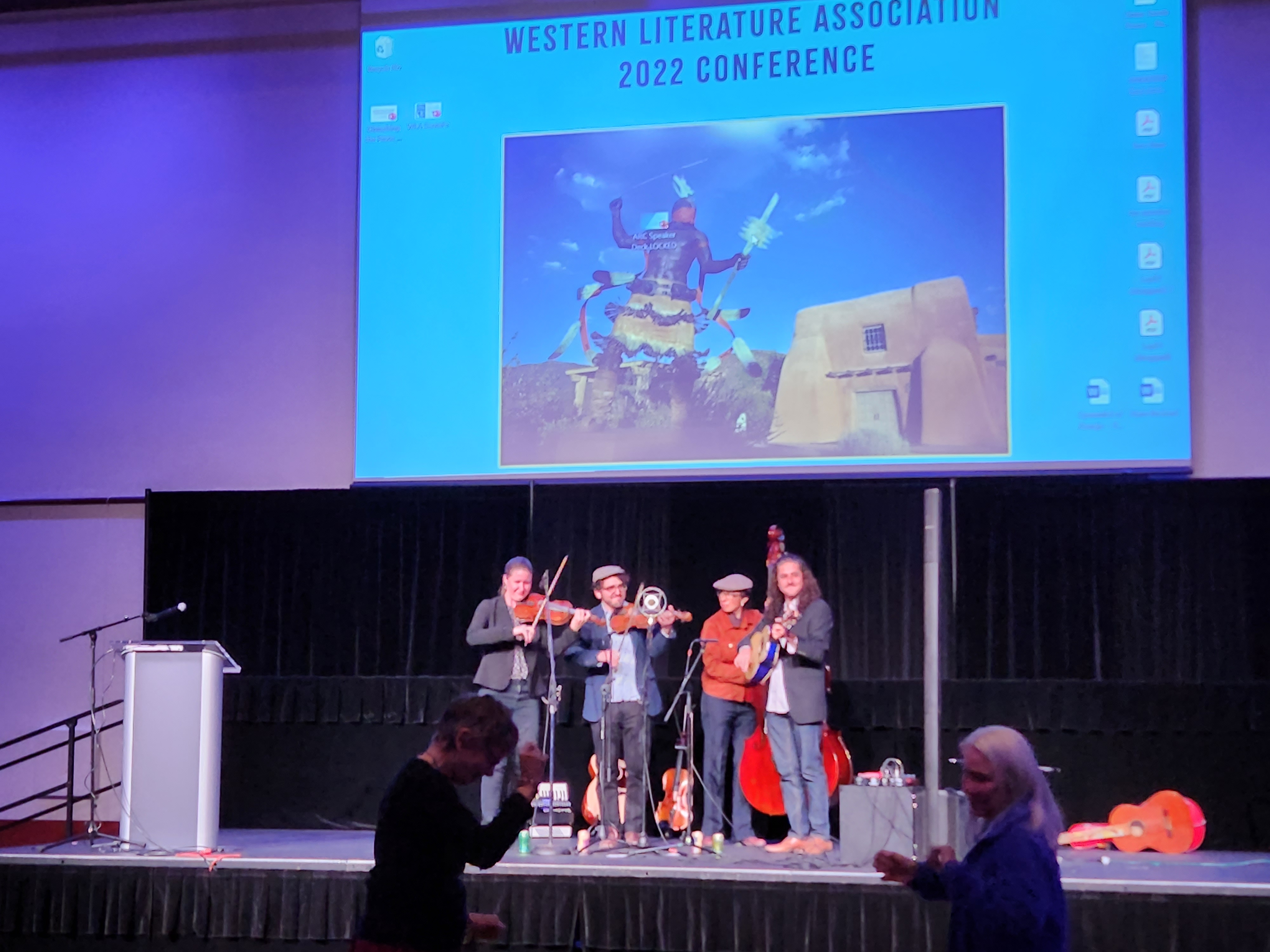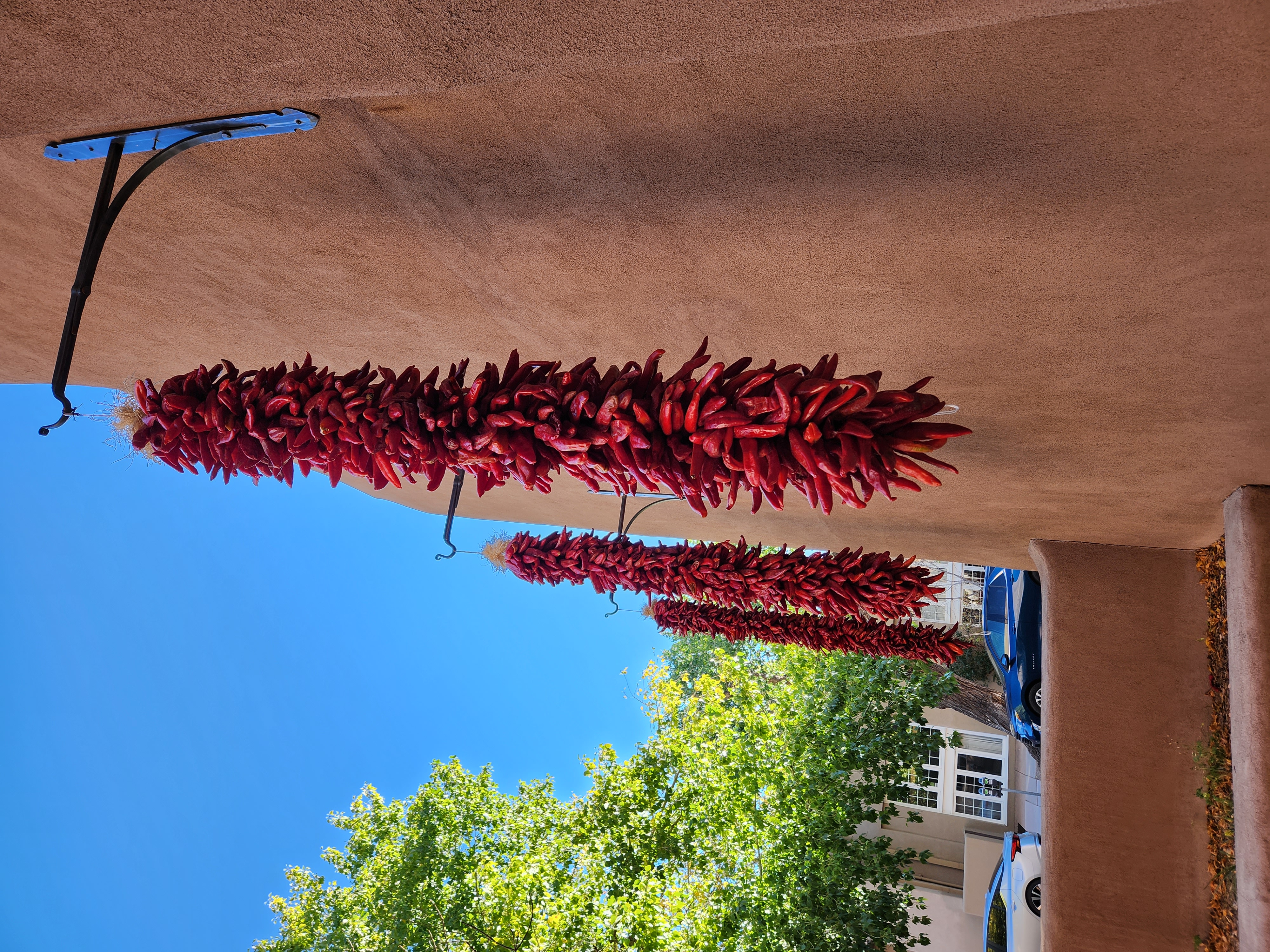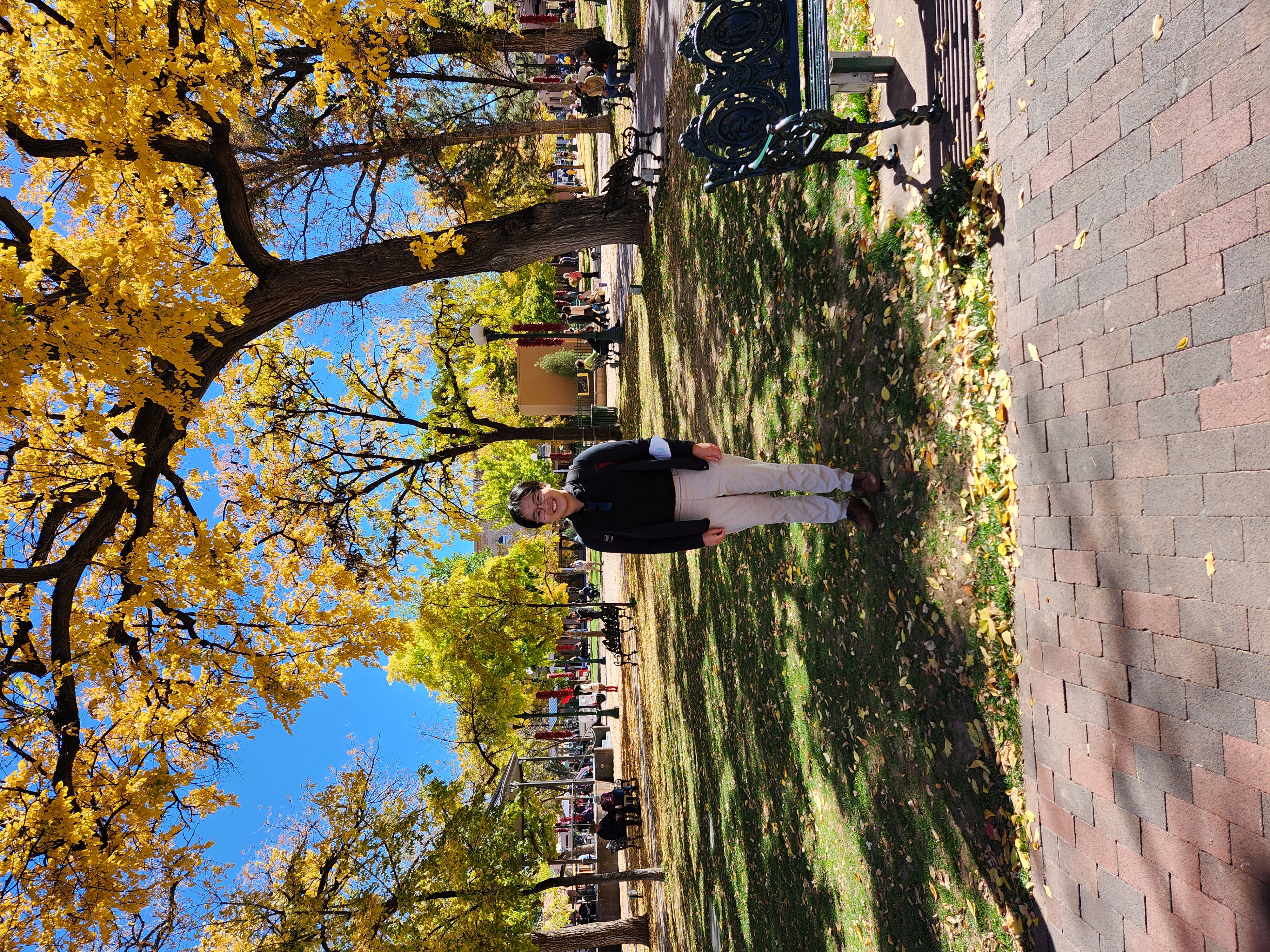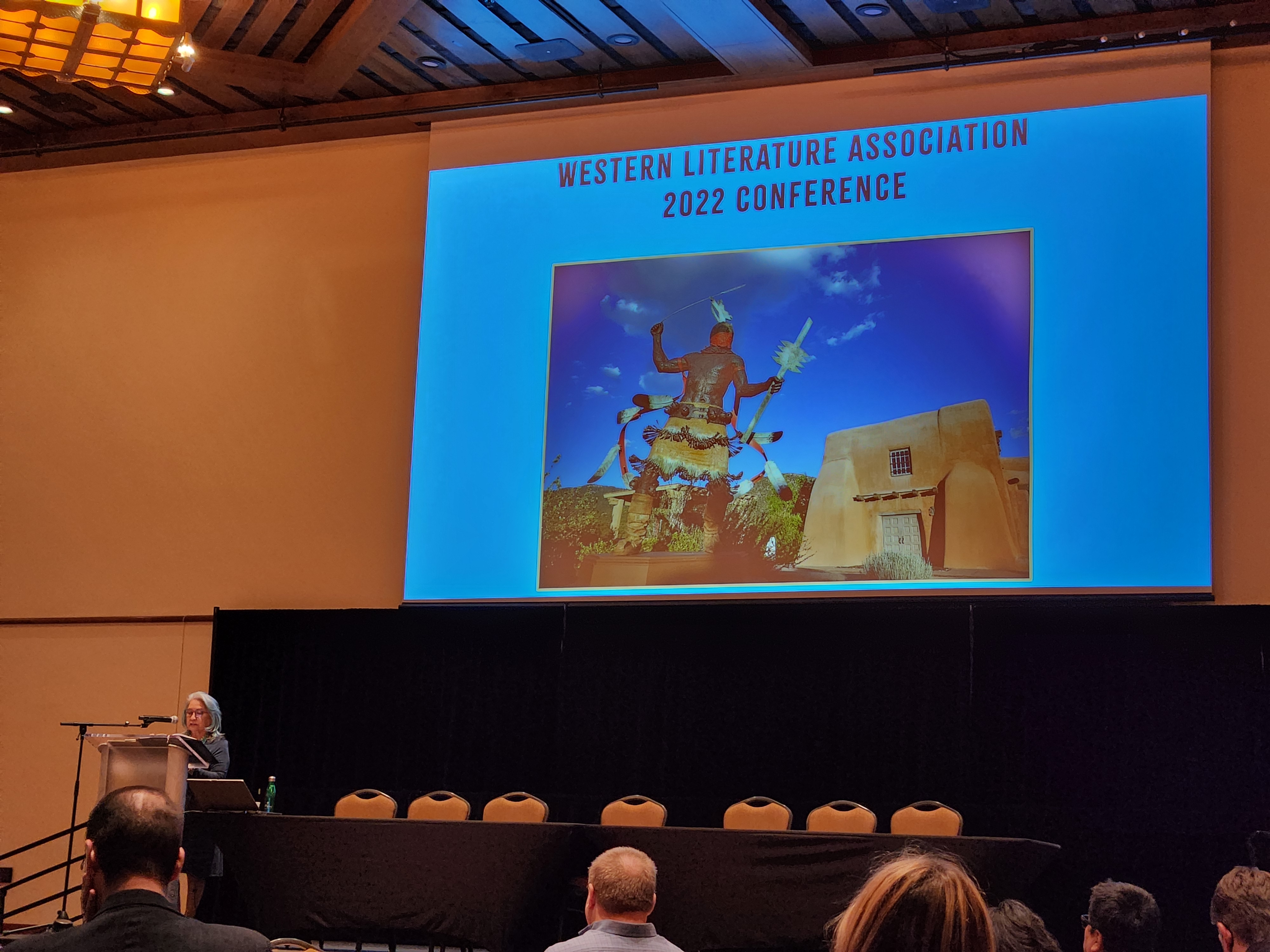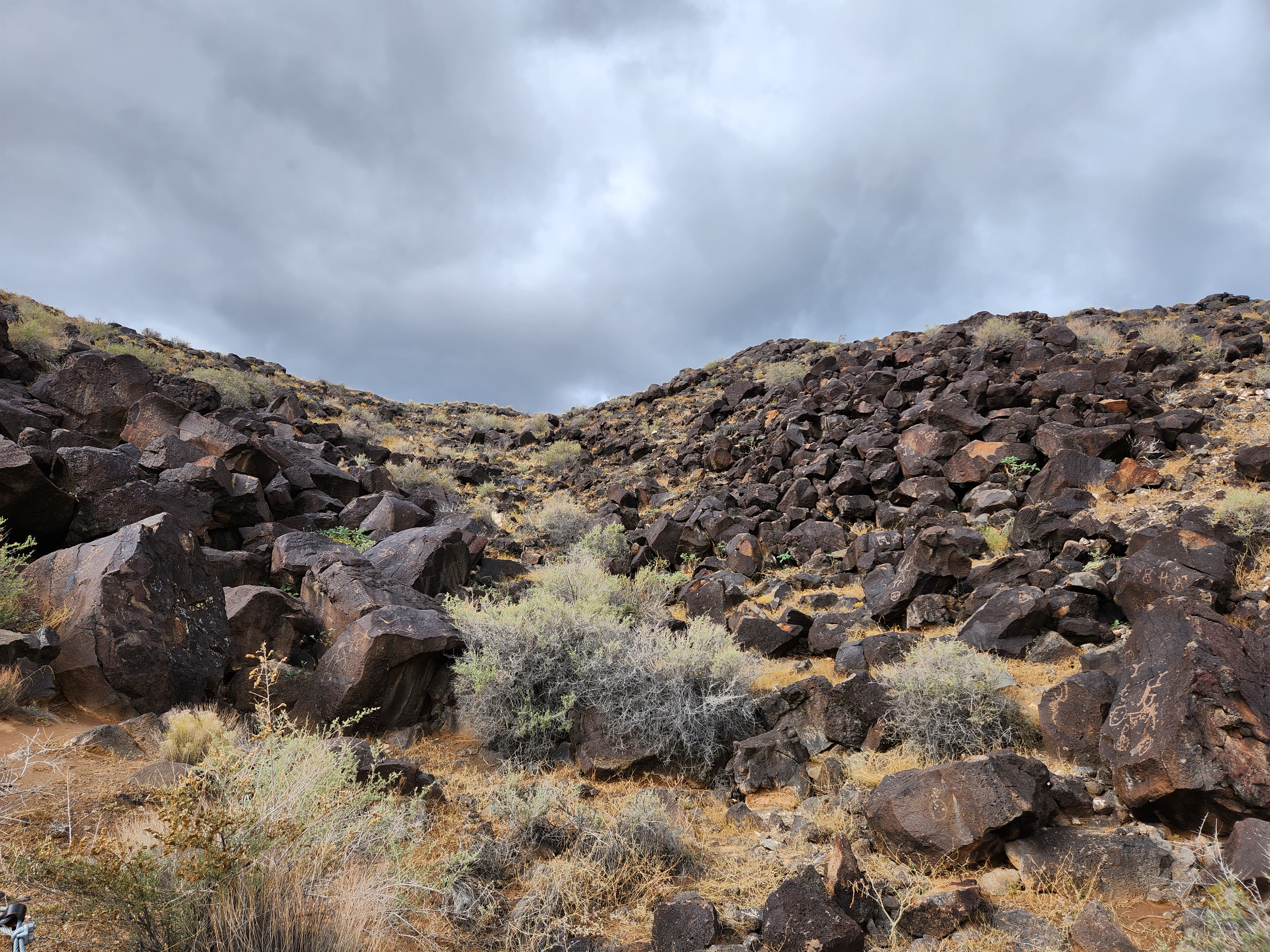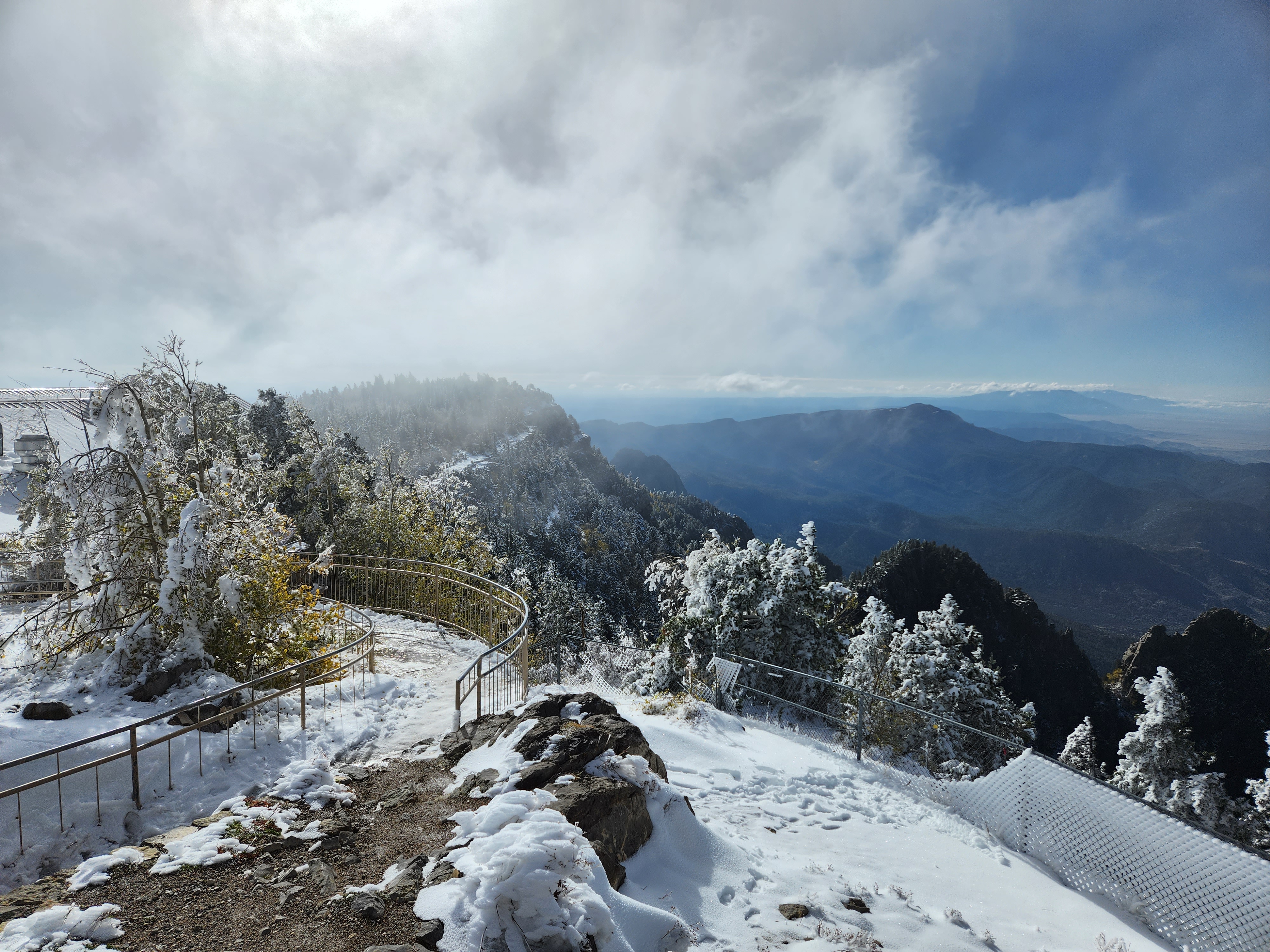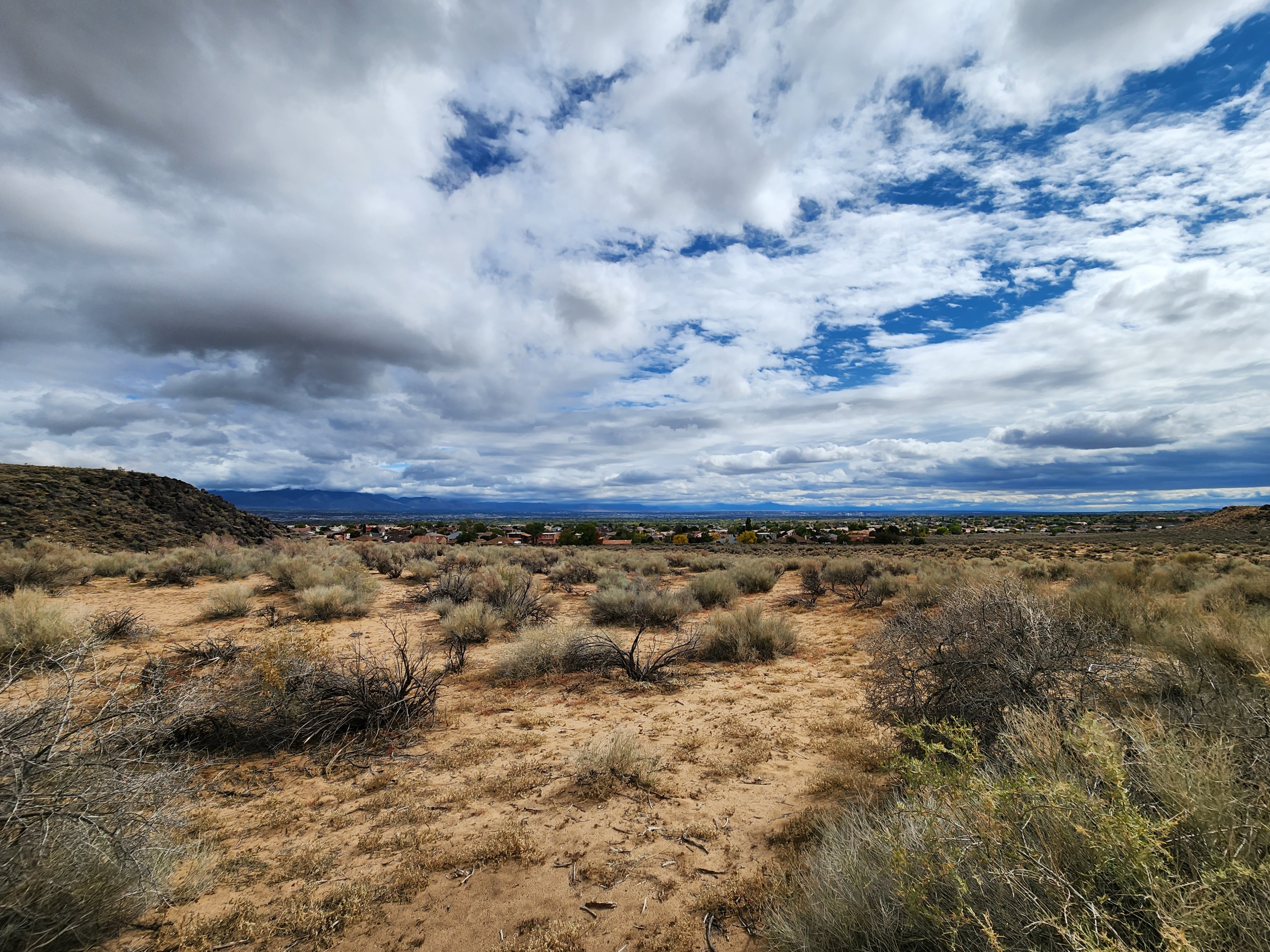
In October, I traveled to Santa Fe, New Mexico to attend the conference of the Western Literature Association. This was my first time attending a conference in a field other than music, and it was productive for me to think through some of the extramusical dimensions of my research and learn about how other scholars engage with the American West. Everyone was very generous and welcoming, and I received helpful feedback on the paper I presented (title and abstract below). I would highly recommend attending and presenting at conferences a little outside of your discipline—I learned a lot, and it was a good way to practice sharing my research with an audience that wasn’t familiar with music jargon. As an added bonus, Santa Fe is less than an hour’s drive from my hometown (Albuquerque), so it was fun to return home, feel a bit like a tourist, and experience fall in New Mexico for the first time in almost a decade.
The Sonic Frontier: Musical Portrayals of Western Landscapes
Abstract
In Western music theory, a “topic” is a conventionalized musical gesture or style that has been used so frequently outside its original context that it becomes associated with specific extramusical imagery or narratives. In this paper, I theorize what I call the “frontier” topic, a category of musical gestures that portray landscapes of the American West in Western classical music. Analyzing passages from musical works such as Aaron Copland’s Billy the Kid (1938), Ferde Grofé’s Grand Canyon Suite (1932), and Virgil Thomson’s Plow that Broke the Plains (1936), I first identify musical features that constitute the frontier topic, such as pentatonic scales (which contribute to a sense of vastness and timelessness) and walking bass lines (which create a sense of constant forward motion). I then consider how these features might communicate different conceptions of the West. For instance, in The Plow that Broke the Plains—which was composed for a documentary about the agricultural contributors to the Dust Bowl—walking bass lines herald natural catastrophe. The paradoxical simultaneity of pentatonicism and walking bass lines in the frontier topic suggests a perception of the West that is defined both by preservation of natural landscape and by constant settlement and colonial expansion.
Photos: Click to enlarge and read captions
Recent Posts
SMR to Host Midwest Graduate Music Consortium 2025 Conference – January 13, 2025
SMR Welcome BBQ at County Farm Park – October 01, 2024
Julian Grey defends dissertation – June 05, 2024
Michaela Franzen defends dissertation – May 21, 2024
Kai West defends dissertation – May 16, 2024
Micah Mooney and Carlos Pérez Tabares present at Music Theory Midwest – May 12, 2024
SMR end-of-year round-up at County Farm Park – April 25, 2024
SMR hosts Research Showcase – September 29, 2023
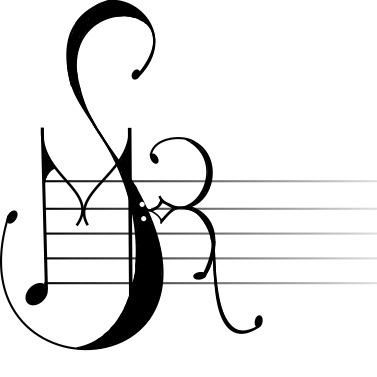 Society for Music Research
Society for Music Research
